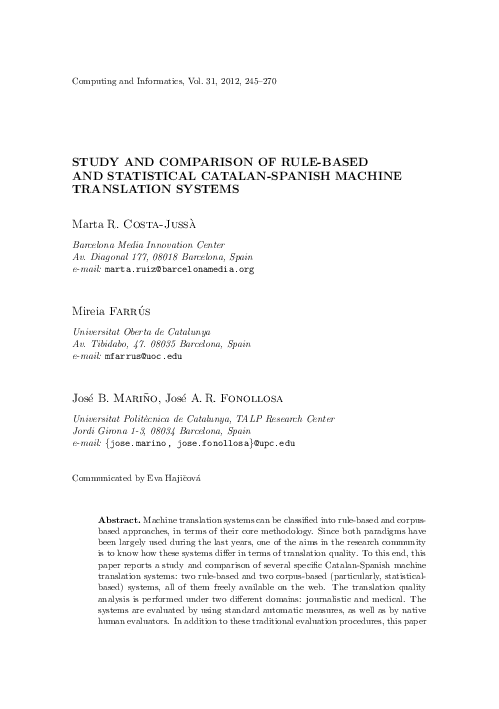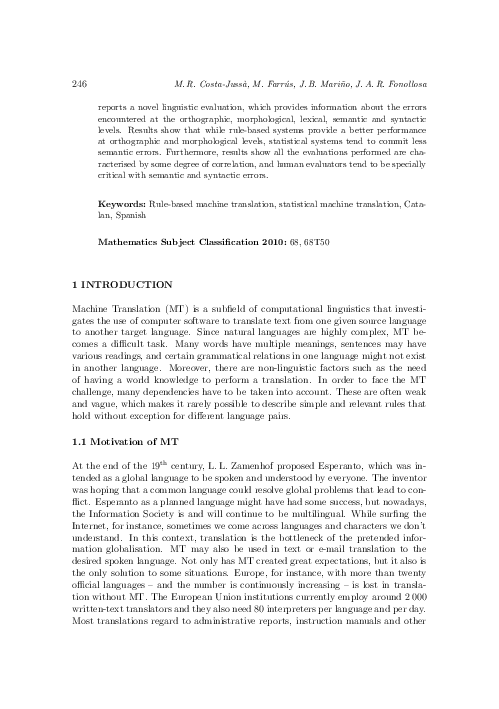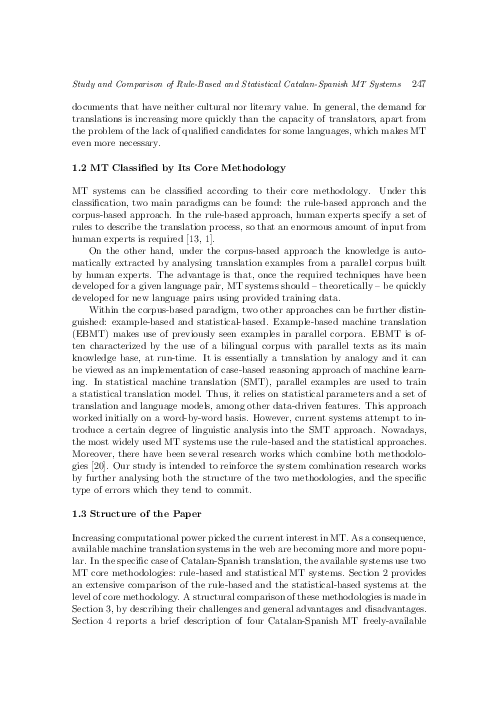Study and Comparison of Rule-Based and Statistical Catalan-Spanish Machine Translation Systems
keywords: Rule-based machine translation, statistical machine translation, Catalan, Spanish
Machine translation systems can be classified into rule-based and corpus-based approaches, in terms of their core methodology. Since both paradigms have been largely used during the last years, one of the aims in the research community is to know how these systems differ in terms of translation quality. To this end, this paper reports a study and comparison of several specific Catalan-Spanish machine translation systems: two rule-based and two corpus-based (particularly, statistical-based) systems, all of them freely available on the web. The translation quality analysis is performed under two different domains: journalistic and medical. The systems are evaluated by using standard automatic measures, as well as by native human evaluators. In addition to these traditional evaluation procedures, this paper reports a novel linguistic evaluation, which provides information about the errors encountered at the orthographic, morphological, lexical, semantic and syntactic levels. Results show that while rule-based systems provide a better performance at orthographic and morphological levels, statistical systems tend to commit less semantic errors. Furthermore, results show all the evaluations performed are characterised by some degree of correlation, and human evaluators tend to be specially critical with semantic and syntactic errors.
mathematics subject classification 2000: 68, 68T50
reference: Vol. 31, 2012, No. 2, pp. 245–270


